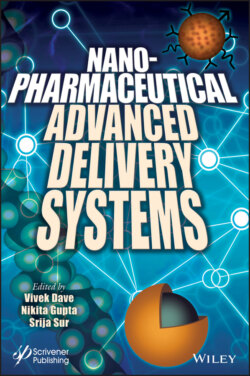Читать книгу Nanopharmaceutical Advanced Delivery Systems - Группа авторов - Страница 54
2.3.3 Delivery of Vaccines
ОглавлениеNano-vaccines are an upcoming concept in immunotherapy. Till date, injectable route has been used to deliver vaccines because of their strong potential to induce immune response in comparison to mucosal vaccines. Mucosal nano-vaccines (developed using either nanomaterial adjuvants or delivery carriers) initiate strong humoral and cell-mediated responses, besides enhanced delivery of potentially protective viral epitopes [91]. Generally, organic material carriers like cationic polymers and liposome derivatives have been used as they are biodegradable, biocompatible, non-toxic, and non-immunogenic and provide large surface area, being non-viral at the same time. The nanomaterial-based adjuvants for use in vaccines have been reviewed by Han et al. [92]. Nanoparticles of Newcastle disease virus (NDV) encapsulated in N-2-hydroxypropyl trimethyl ammonium chloride chitosan (NDV/La Sota-N-2-HACC-NPs) showed very low toxicity, higher safety, sustained release, and stronger immune responses (cellular, humoral, and mucosal) as compared to marketed product [93]. Positive indicative results were reported for orally administered PLG-encapsulated CS6 antigen from E. coli to induce mucosal IgA responses in humans [89, 94]. Even lipid-based delivery systems such as human liposomes, immuno-stimulating complexes (ISCOMs), virosomes, and proteosomes have shown encouraging results in mucosal vaccination approach in preclinical models [95, 96].
